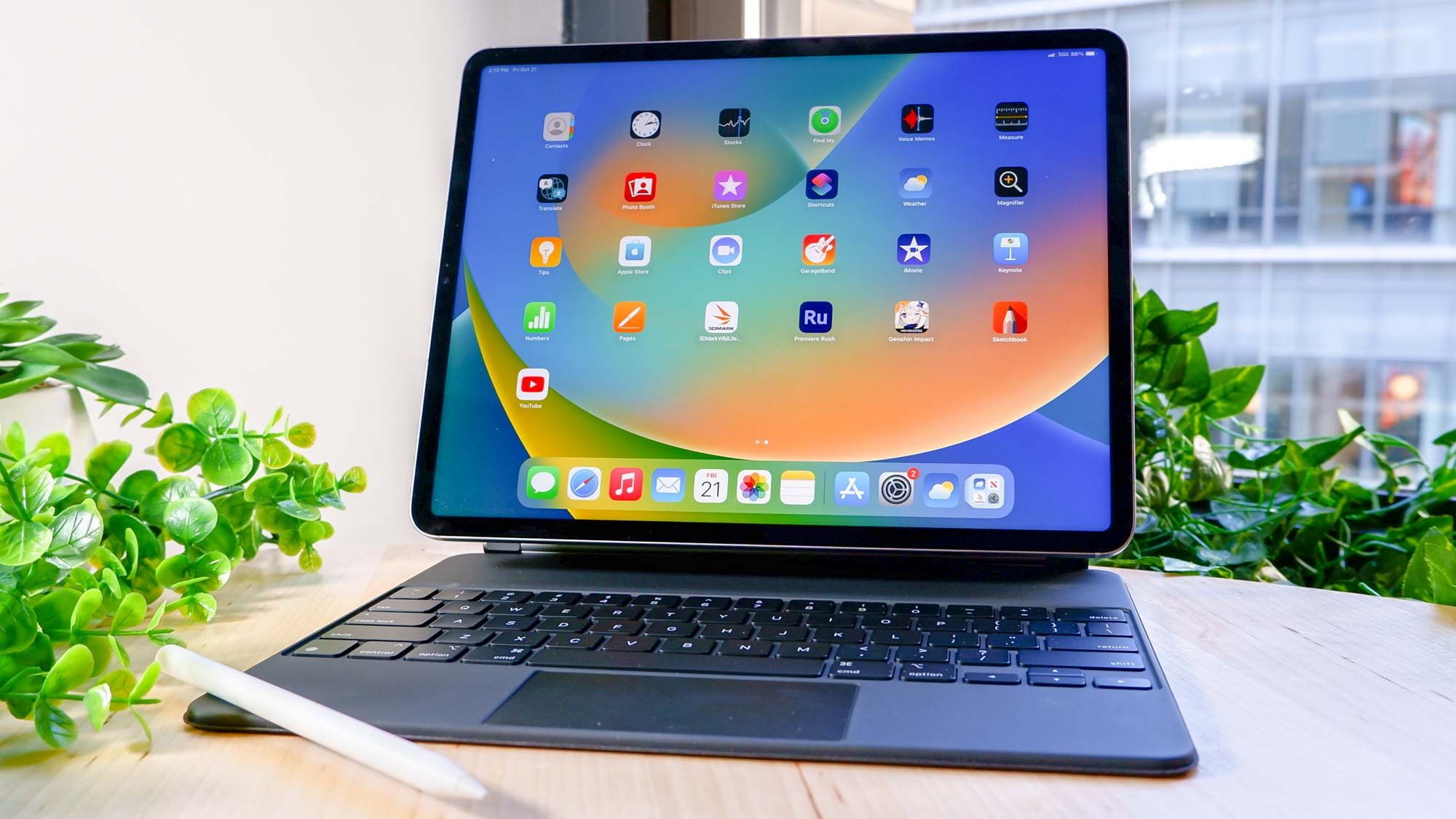The new OLED iPads could be the most expensive tablets ever
Apple's 2024 OLED iPad Pro models rumored to start at $1,500

For anyone eagerly awaiting the launch of the iPad Pro 2024 with an OLED display, I've got bad news (at least for your wallets). Apple's OLED iPad Pro models could cost nearly twice as much as their current LED and mini-LED counterparts, according to the latest from MacRumors.
Pricing for Apple's 2024 OLED iPad Pro could start at $1,500 for the 11-inch model while the 13-inch model could set you back $1,800. One report has quoted up to $2,000 for the larger model, but that price could be for an option with additional storage, MacRumors notes.
That's significantly more expensive than the best iPads currently on the market (which start at $799 and $1,099 for the 11-inch and 13-inch Pro models, respectively) and even dwarves the price of some MacBooks. For reference, the new 14-inch MacBook Pro with Apple's top-of-the-line M3 chip comes in at $1,599, and the last-gen but still significantly powerful MacBook Air M2 starts at $1,099.
It's no secret that upgrading to an OLED display bumps up a device's price. Unlike traditional LED or LCD TVs, OLED (which stands for organic light-emitting diode) panels use organic compounds that emit light when charged by an electric current — a new technology that requires a more intricate and labor-intensive (i.e. more expensive) manufacturing process. New research suggests there may be a much more affordable and efficient way to produce the same results, but as with any technological advancement, it'll take a while before manufacturers can adopt it at such a scale that it widdles down the price tag customers see on the shelf.
So it's safe to assume any price hike for Apple's 2024 OLED iPad Pro can be attributed to its OLED panel, which Apple has not used in iPads before. Apple's unique specifications for the screens, such as a very thin design using a "two-stack tandem" construction, could also be to blame for the higher cost compared to other OLED devices on the market, MacRumors speculates. This type of OLED panel uses two layers to display its red, green and blue pixels, which should make the display brighter and longer-lasting. Samsung and LG Display, the companies building the displays, have purportedly designed these special two-stack tandem OLED panels specifically for the iPhone maker.
It's worth noting, though, that for that higher price, you're getting a tablet with a brighter display that lasts longer and is more efficient than your typical LED screen. If you're still not sold, be sure to check out our guide on whether OLED iPads are worth waiting for or not. New iPad Air and iPad Pro models as well as accompanying accessories are expected to be announced at a yet-unconfirmed March Apple event.
More from Tom's Guide
- Apple testing souped-up Siri with help from ChatGPT
- Forget OLED iPad — I just want an iPad with MagSafe
- iPads in 2024: OLED iPad Pro, new iPad Air and more
Sign up to get the BEST of Tom's Guide direct to your inbox.
Get instant access to breaking news, the hottest reviews, great deals and helpful tips.

Alyse Stanley is a news editor at Tom’s Guide, overseeing weekend coverage and writing about the latest in tech, gaming, and entertainment. Before Tom’s Guide, Alyse worked as an editor for the Washington Post’s sunsetted video game section, Launcher. She previously led Gizmodo’s weekend news desk and has written game reviews and features for outlets like Polygon, Unwinnable, and Rock, Paper, Shotgun. She’s a big fan of horror movies, cartoons, and roller skating.
